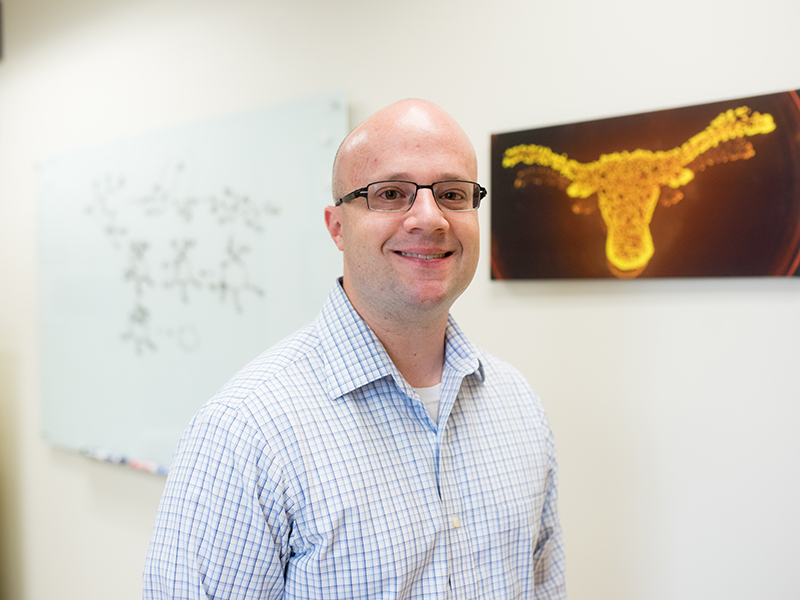
As the world's attention has turned back to space travel in recent years, logistics questions about how to pull off long missions, and maybe even someday life on other planets, have popped up.And researchers around the world are starting to look at taking the burgeoning field of biomanufacturing – the use of engineered biological systems to create products – to space to support the idea of space-bound populations.
A research team from The University of Texas at Austin is part of a new program that aims to take the initial steps to mitigate risks associated with manufacturing capabilities that rely on biological processes in space. The Defense Advanced Research Projects Agency (DARPA) Biomanufacturing: Survival, Utility, and Reliability beyond Earth (B-SURE) program will address foundational scientific questions to determine how well industrial biomanufacturing microorganisms can perform in space conditions.
The team led by Texas Engineers Hal Alper and Lydia Contreras, both Professors in the McKetta Department of Chemical Engineering, aims to understand the effects of different radiation levels and species on microbial molecule production, and what methods can be used to mitigate any deleterious effects to ensure high bioproductivity.

"The biomanufacturing of everything we use every day — from small molecule fuels to large therapeutics takes place in very large, well-controlled, steel-tank reactors," said Alper. "While this mode works for us on this planet, we need a completely different paradigm as we look toward long space missions and even life on different planets."
The UT Austin team is one of three groups funded by the B-SURE program as part of this announcement. The researchers will receive up to $1.9 million over 18 months.
The researchers are heading up the "Variable Radiation Track" with support from teams from the University of Washington, University of Wisconsin-Madison, and Signature Science LLC. This research will establish the fundamental knowledge needed for delivering successful bioproduction in space.
Other teams, from the University of Florida and Washington University in St. Louis are studying the impact of low gravity on microorganisms and different types of feedstocks for them, respectively.
Biomanufacturing is important to the development of many things we use in our daily lives, including fuels, chemicals and medicine. As we look toward the future of space, there is a growing need to produce these things under a variety of conditions.
“Outer space, the moon, Mars, all these places have incredibly harsh conditions,” said Lydia Contreras who studies survival mechanisms of extremophilic organisms and is responsible for evaluating the biological impact of various space-relevant irradiation levels on cell performances. “We will be tasked with taking processes that are done under very controlled conditions and make it possible to execute them in unpredictable environments.”
Adapted from original article: Cockrell.utexas.edu.






